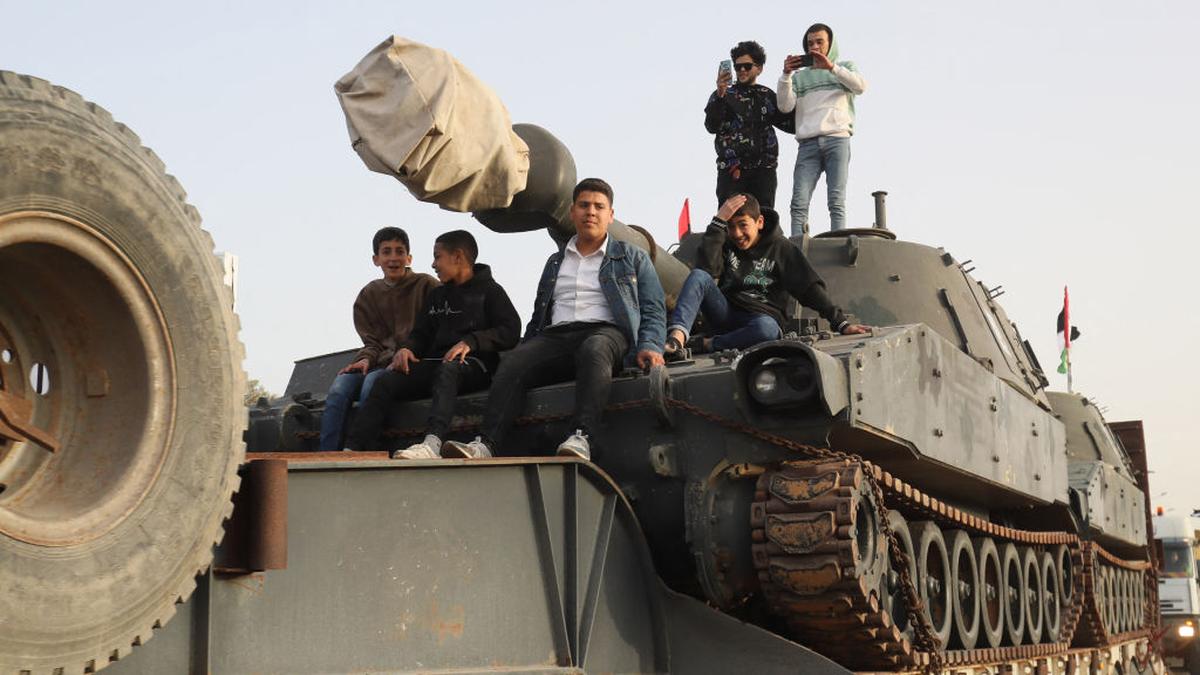
Facing up to tyranny | Review of ‘My Friends’ by Hisham Matar
The Hindu
Hisham Matar's "My Friends" explores friendship, exile, and courage amidst political turmoil, offering a profound literary experience.
“I have lost friends, some by death... others by sheer inability to cross the street,” wrote Virginia Woolf in 1931, and if there is one book that embodies this quote, it is Hisham Matar’s My Friends, longlisted for this year’s Booker Prize. Friendships are most certainly an ‘education similar to literature’. A field that requires its own forensic study.
My Friends spans 30 years, from 1980 to the Libyan revolution of 2011, told within a two-hour-long walk across London undertaken by the protagonist, Khaled. The story begins with the end — two friends part and the reader does not know why. As one further wades through the waters, it is revealed that Khaled’s relationship with his friend is not an ordinary one. In 1980, when Khaled was still in Libya, living with his parents, a story was narrated on radio by a journalist as an apparent sign of protest against Libyan dictator Muammar Gaddafi. Killings, assassinations and abduction were routine and exiled Libyans were not exempt from the tyrant’s surveillance.
The said story was by a young Libyan writer called Hosam Zowa, who was then studying in Trinity College, Dublin. Titled ‘The Given and the Taken’, it was a bizarre tale of a man being eaten alive by his cat until he ‘was nothing but his head and torso’. Deeply moved, Khaled could never shake off the feeling this allegory had cast on him. Exactly three years later, he moves to the University of Edinburgh, London, to study English literature. And it isn’t until years later in Paris that he actually meets Hosam and thus begins the chronicle of their profound friendship.
It is rumoured that Picasso was busy having his coffee somewhere in France while World War I raged on in the background. Hosam’s character juggles with the presupposed idea of a reactionary artist and on top of that, a courageous one in the face of tyranny. While being ordinary human beings living in the shadows of their own predicament, it is expected that an artist be an exemplary force in times of crises.
Mustafa, another dear friend of Hosam’s who arrives in London at about the same time, is disappointed when Hosam is unable to speak up against the dictator when given a platform. Ideologies are often always at loggerheads in the novel. Khaled himself admits about his friendship with Mustafa and Hosam: “I was convinced that my two friends represented two separate and irreconcilable parts of my life that I had somehow to keep in balance, and that if it were not for me, they would never see each other.”
Upon reaching London, each of them, like “hopeful fishermen, cast their net wide”. London as a setting becomes both an abstract ‘bottomless well’ and the material reality in which events unfold. It is also Khaled’s walking companion and has sometimes a gory life of its own. My Friends is as much a story of exiled humans as it is about the anguish of prematurely disillusioned young men coming of age. The characters are continuously scrutinised for having too much courage or shamed for relegating things to fate. The author manages to keep the reader in the proverbial shoes of Khaled as he is consumed by the idea of his only two friends turning into men of action while he watches from the sidelines, forever exiled.
Having penned down his lived experience in his Pulitzer-winning 2017 memoir The Return, Matar comes out as an ‘exemplary sufferer’ with this book. My Friends might just be one of Matar’s best attempts at impersonality. He responds to history and politics more violently than he has in any of his other works. Also remarkable about this book is its treatment of women, who despite being secondary characters, do not come off as mere appendages, and are given sovereign space on the page.











